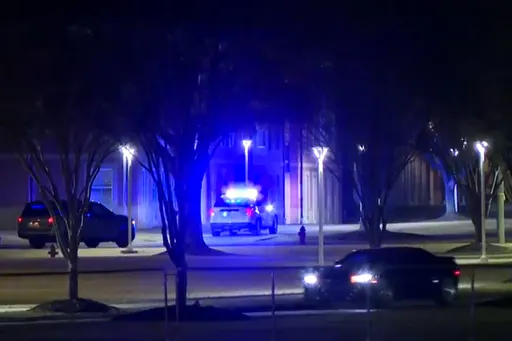This is how it happened. A group of rogue soldiers backed by tanks and gunship helicopters tried to overthrow the government in Turkey on the night of July 15, 2016.
The coup failed after tens of thousands of ordinary people took to the streets and confronted heavily armed soldiers in Ankara, Istanbul and other cities. More than 250 people lost their lives.
Fetullah Gulen, a Turkish cleric and businessman who lives in self-imposed exile in a sprawling house on a private estate in the US state of Pennsylvania was behind the coup attempt.
While Ankara says it has sufficient evidence to prove his involvement, Washington refuses to hand him over for a trial.
But in Turkey, the arrests on Gulen’s supporters intensified.
Investigators dug into a deep-rooted organisation that operated like a shadow state, running schools, hostels, businesses and helping its supporters infiltrate key institutions such as the media, the judiciary and the military.
That’s when an American pastor, Andrew Brunson, came under police observation.
Brunson, a Presbyterian minister who has lived in Turkey since 1993, was arrested in October 2016 on terrorism charges. He is awaiting trial.
His case has become one of the reasons behind the recent slide in the Turkish lira, which lost a fifth of its value last week.
US President Donald Trump, his Vice President Mike Pence and other officials have taken keen interest in securing Brunson’s release, issuing regular threats to Turkey.
Citing his continued detention, the Trump administration took the unprecedented step of announcing sanctions against two top Turkish officials – Minister of Justice Abdulhamit Gul and Minister of Interior Suleyman Soylu.
Turkey and the US are both part of the North Atlantic Treaty Organisation, an international military alliance of the Western powers, and foreign policy analysts say Washington has never been so harsh against any of its key allies.
Last week, Trump also doubled tariffs on imports of Turkish steel and aluminium at the time when the Turkish lira had taken an unprecedented plunge, singling out Ankara for such a punitive action.
The increase in tariffs is in addition to what the EU, Turkey, China and others have already faced.
So where does Brunson fit in all this?
“Trump is heading for a crucial election in November. He wants the evangelical votes. Pence also drives support from among the [Christian] community. So they want Brunson out before that,” says Dr Emre Alkin, a monetary economist and vice president at Istanbul Altinbas University.
The millions of "white" Christian evangelicals, who make up 20 percent of the total vote bank in the US, overwhelmingly supported Trump in his bid for the presidential elections in 2016.
Now the entire House of Representatives and some of the seats in Senate are up for grabs in the midterm elections. The Republicans are trying hard to hold on to both the chambers, while the Democrats are mounting a serious challenge.
The evangelical leadership has been pressing the US administration to secure the release of Brunson, who they say was doing "God’s work" in Turkey. Some leaders have even asked their followers to cut back their trips to Turkey.
Alkin says while the so-called delay in Brunson’s trial is being shoved down the people's throats in the US for political gains, such delays are a norm in Turkey's legal system.
“It takes years for trials to move on. That’s nothing specific to his case. That’s just how things work here.”
Trump's knee-jerk reaction to the diplomatic crisis has now caused economic distress outside Turkey. The lira’s depreciation caused a knock-on effect, sending currencies in other emerging markets down.
Pouring salt on old wounds
Turkey’s economy took a battering in the months after the coup as growth tapered off. The Turkish lira lost value against other currencies and misplaced speculations spooked investors.
But backed by a government spending programme, which included insurance of bank loans and tax cuts, the GDP started to register growth again.
There was a caveat, though. Some experts feared the economy was overheating as higher spending fueled inflation to double digits along with a widening current account deficit, which in terms of economy is basically a measure of how much money is coming in and going out of a country.
Turkey has also for years suffered from the issue of a low saving rate, which has left the private sector heavily exposed to foreign exchange debt.
“This leaves developing countries open to vulnerabilities,” says Alkin, adding that the businesses have borrowed in foreign currency to build infrastructure like factories, hotels and power plants.
“Now imagine the US, the most powerful country, is issuing harsh statements against Turkey. How can you expect a foreign investor to invest in such a climate? In times like these, all the vulnerabilities kick in.”
The lira’s troubles also stem from a gradual rise in US interest rates, something that has promoted investors to move funds from emerging markets to places where returns are high and risks low.
On its part, the Turkish government blames speculators for pushing down the lira. But they also say that the country's economic fundamentals are strong.
Analysts have raised concerns about Turkey’s corporate debt of around $300 billion, which is denominated in foreign currency.
They say companies have to either earn in foreign exchange or buy it from the market at higher prices now to pay off those loans.
Official figures, however, show the situation is far from any crisis.
Around one-fifth of all foreign exchange denominated loans in Turkey are concentrated in large scale firms, which have the ability to withstand the shock, according to the Central Bank of Turkey.
Also some companies, such as the energy firms, have their revenues indexed to the foreign exchange, allowing them to absorb the lira’s depreciation.
The Turkish government has also taken steps to ensure the private companies, which do not make money in foreign currency, desist from borrowing heavily in dollars or euros.
But what has weighed heavily on the lira is the diplomatic strain between Ankara and Washington, says Dr Erdal Yalcin, a professor of international economics at Konstanz University of Applied Sciences.
“The tariffs increased on Turkish exports of steel and aluminium had no economic rationale. It was meant to put pressure on the lira,” he says.
Its impact would be on just $1 billion worth of goods, a negligible portion of Turkey’s annual exports of more than $150 billion, he said.
“Both countries should look to ease the tensions.”
Traditionally, the United States has acted as a bulwark whenever markets have been jittery. But the Trump administration has gone back on that role by initiating trade wars with the European Union, China and now Turkey.
Yalcin says the saddest part about the entire episode is that Turkey is losing an opportunity to attract foreign investments.
“I talk to businessmen here in Germany, and they say they were really looking forward to the period after the elections. But now all this has happened.”























